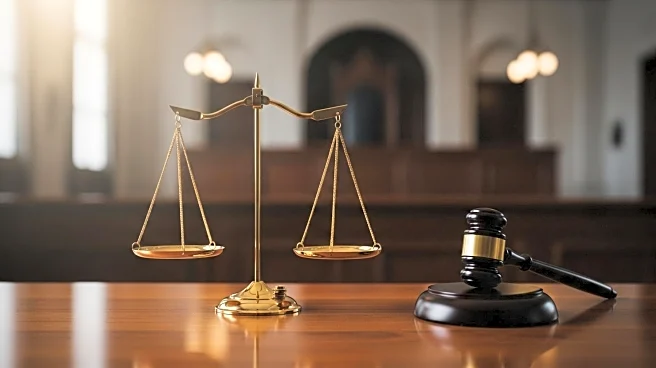What is the story about?
What's Happening?
The Supreme Court is likely to support Illinois Congressman Michael Bost in his challenge against a state law allowing mail ballots to be received after Election Day. Bost's appeal questions whether federal candidates can sue over election regulations, even if they are favored to win. The case could open federal courts to a broader range of election litigation, potentially affecting voting rules nationwide. Bost argues that candidates should have standing to challenge election laws due to the financial burden of extended campaign staffing. The court's conservative justices expressed concern that denying Bost's standing could lead to election litigation being pushed closer to or after Election Day, complicating the electoral process.
Why It's Important?
The case could significantly impact election litigation by allowing candidates to challenge voting rules more easily. This may lead to increased legal disputes over election laws, affecting how states conduct elections and potentially altering voter access. The decision could also influence the legal standards for candidate standing in election-related cases, shaping the future of election law and policy. The ruling may have broader implications for the balance between state and federal oversight of elections, particularly in the context of ongoing debates about election security and voter fraud.
What's Next?
If the Supreme Court rules in favor of Bost, it could set a precedent for other candidates to challenge election laws, leading to more litigation ahead of future elections. This may prompt legislative responses at both state and federal levels to address the legal standards for challenging election laws. Stakeholders, including political parties, civil rights groups, and election officials, may need to adapt to a new legal environment where election rules are more frequently contested.
Beyond the Headlines
The case raises ethical and legal questions about the role of courts in election processes and the potential for judicial intervention to influence electoral outcomes. It also highlights the tension between ensuring election integrity and maintaining voter access, particularly in the context of mail-in voting, which has been a focal point of partisan debate. The decision could have long-term implications for the stability and predictability of election laws, affecting public confidence in the electoral system.















